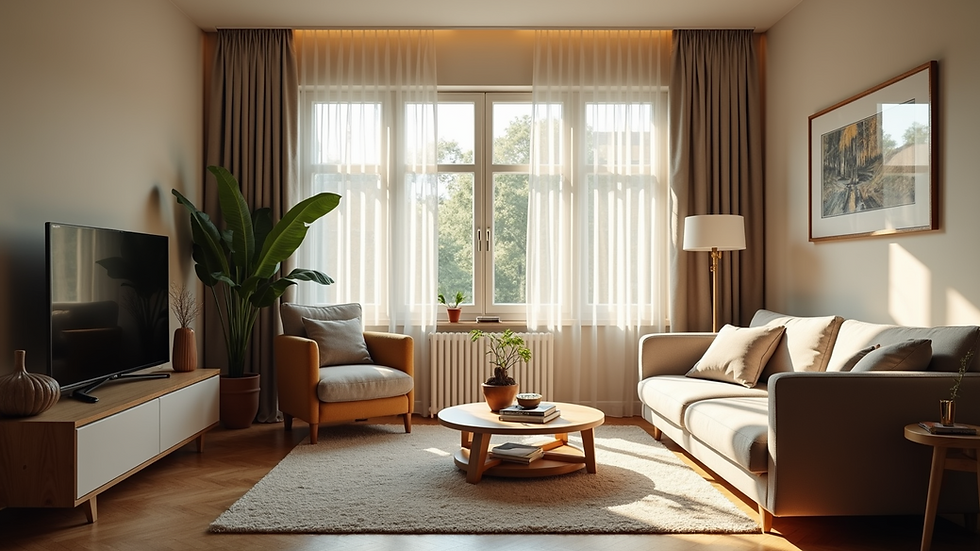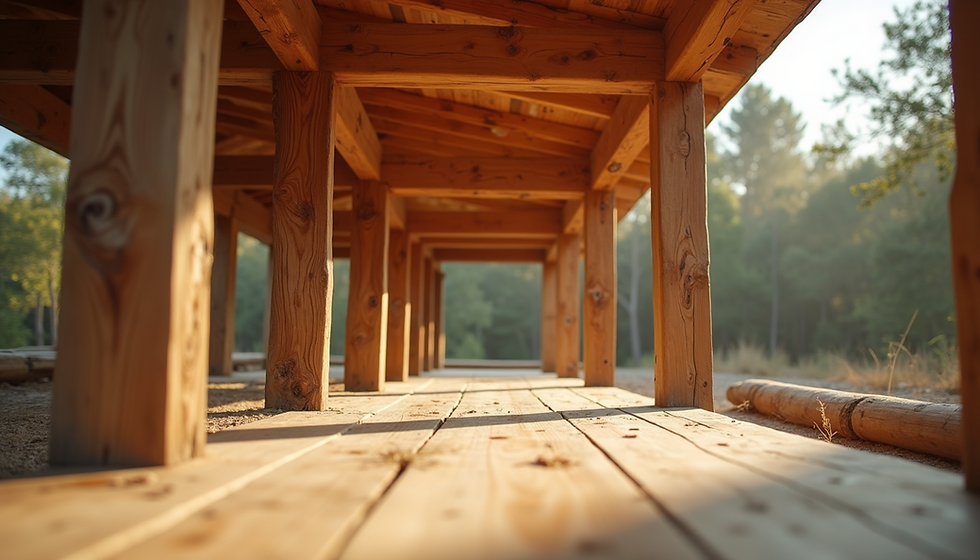Creating a Harmonious Living Space - Tips for Well-Being through Design
- MatandaraClarke Architects

- Jul 15, 2025
- 2 min read
Creating a harmonious living space is more than just about how it looks. It’s about nurturing well-being and peace in your life. In today’s fast-paced world, thoughtful design plays a crucial role in our daily comfort. This post will share practical tips to create a living environment that meets both your emotional and physical needs.
Understand Your Space
Before jumping into design choices, take time to understand your home. Observe how light, sound, and flow influence your environment.
For instance, research shows that natural light can boost your mood and productivity by up to 15%. Assess the areas that feel cramped or congested. Perhaps your living room has oversized furniture that makes it hard to move around. Think about rearranging pieces to allow for more open space, which can create a more inviting atmosphere.

Incorporate Natural Elements
Bringing nature indoors can greatly enhance your well-being. Research indicates that indoor plants can reduce stress and improve mood by 30%.
Consider adding easy-to-care-for indoor plants like snake plants or pothos, which can improve air quality while adding a touch of color. Use materials such as reclaimed wood for furniture or stone accents to create warmth, making your living space feel grounded and peaceful.
Mind Your Color Palette
The colors in your home can directly impact your emotions. When designing your space, select a color palette that promotes tranquility.
Soft blues and greens are known to evoke calm, reducing anxiety levels by up to 22%. Alternatively, neutral colors like beige or pastel shades can create a soothing backdrop. Choose colors that resonate with you and create a balance that encourages relaxation and happiness.

Maximize Natural Light
Natural light is essential for creating a harmonious atmosphere. Aim to maximize it by using sheer curtains or opting for open designs.
Positioning mirrors to reflect light can brighten darker areas. A study found that homes filled with natural light can decrease stress levels by 23%. Additionally, adding flexible lighting options such as dimmable lights allows you to adjust the ambiance for various activities throughout the day.
Foster a Sense of Flow
Creating a good flow in your living space is key to making it feel inviting. Arrange furniture to encourage movement and interaction.
Avoid placing large pieces in pathways, as they can hinder movement. For example, set up a cozy seating area that invites conversation without obstructing pathways. This setup can make your home feel more welcoming and can enhance social interactions.
Transform Your Space into a Personal Sanctuary
Designing a harmonious living space is not just about making it beautiful, but also about enhancing your overall well-being. By understanding your space, integrating natural elements, selecting calming colors, maximizing light, and ensuring a good flow, you can create an area that supports relaxation and joy.
At MatandaraClarke Architects, we believe that thoughtful design improves quality of life—creating an environment that resonates with your lifestyle. Use these straightforward tips to transform your living space into a sanctuary that reflects your personal aspirations.




Comments